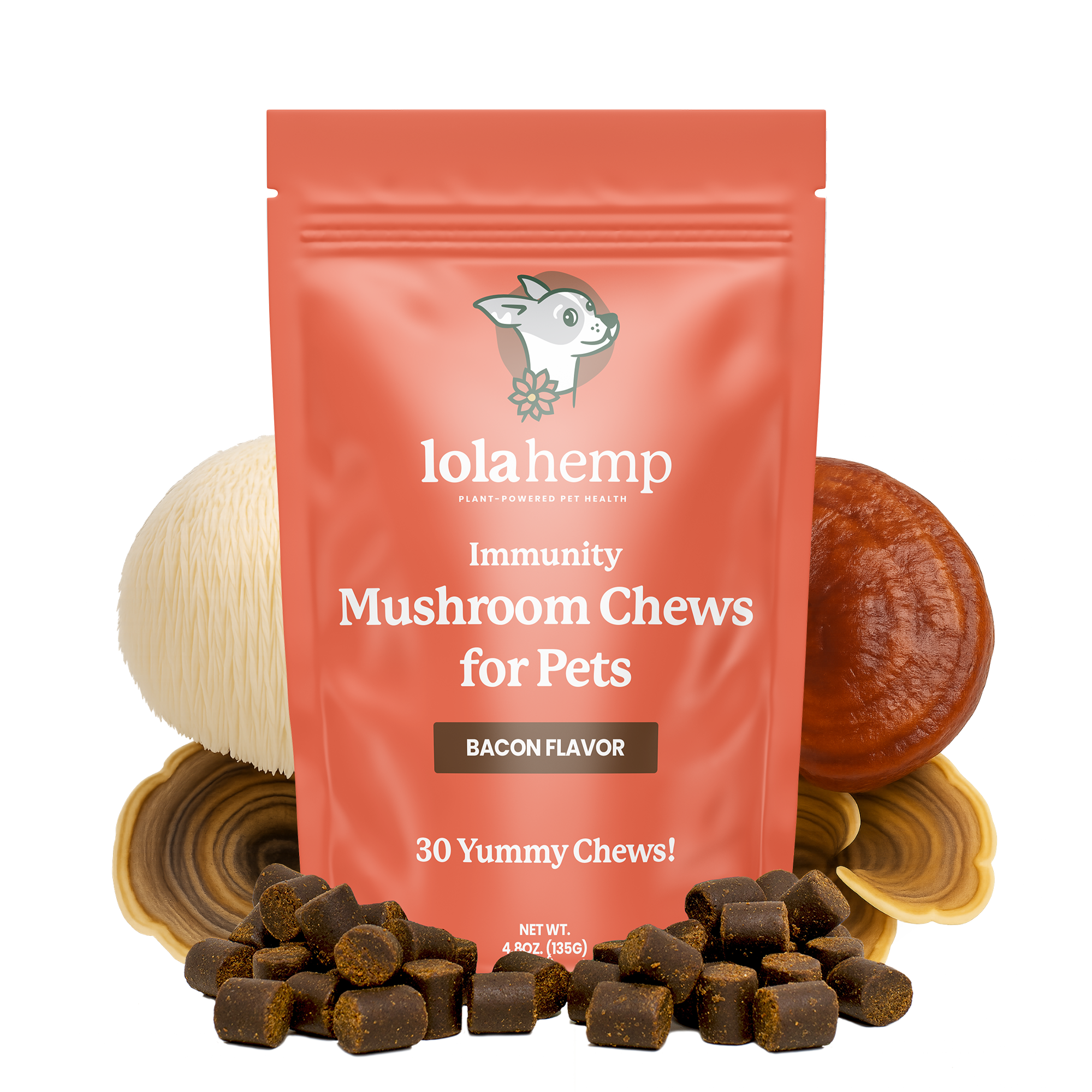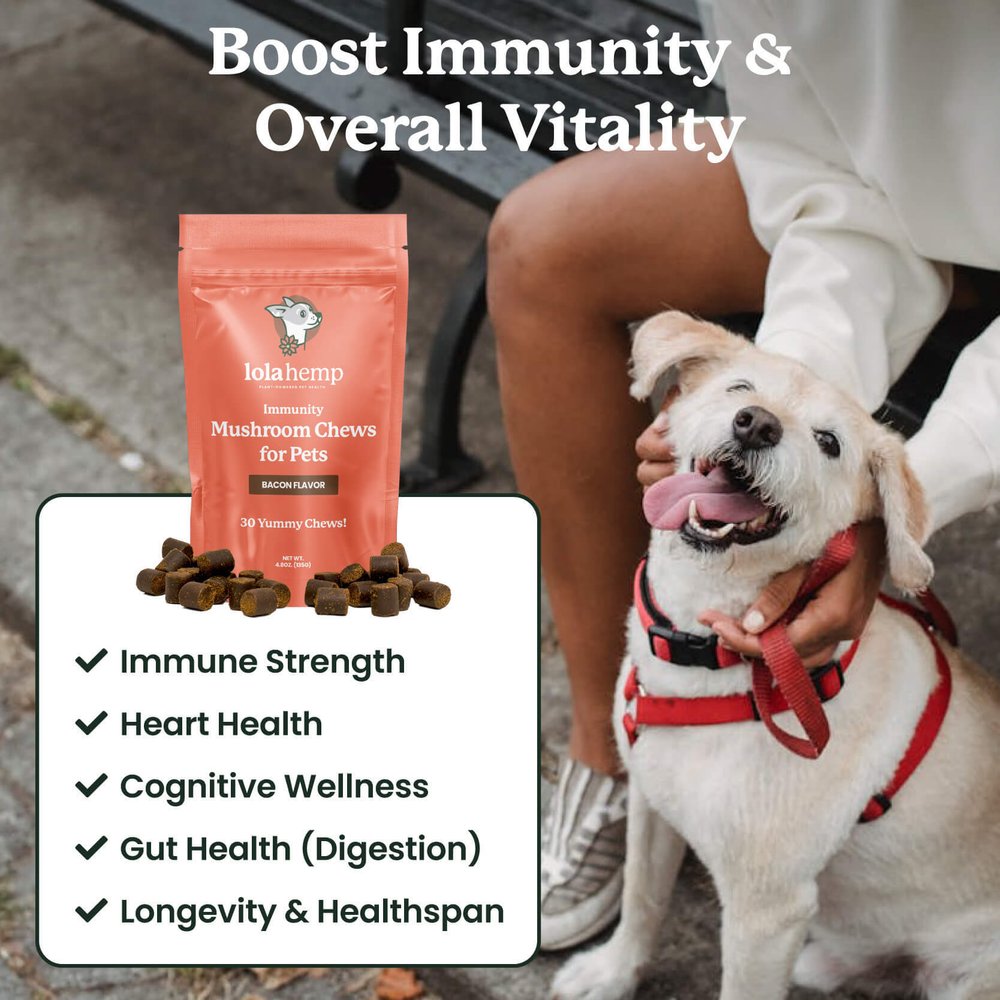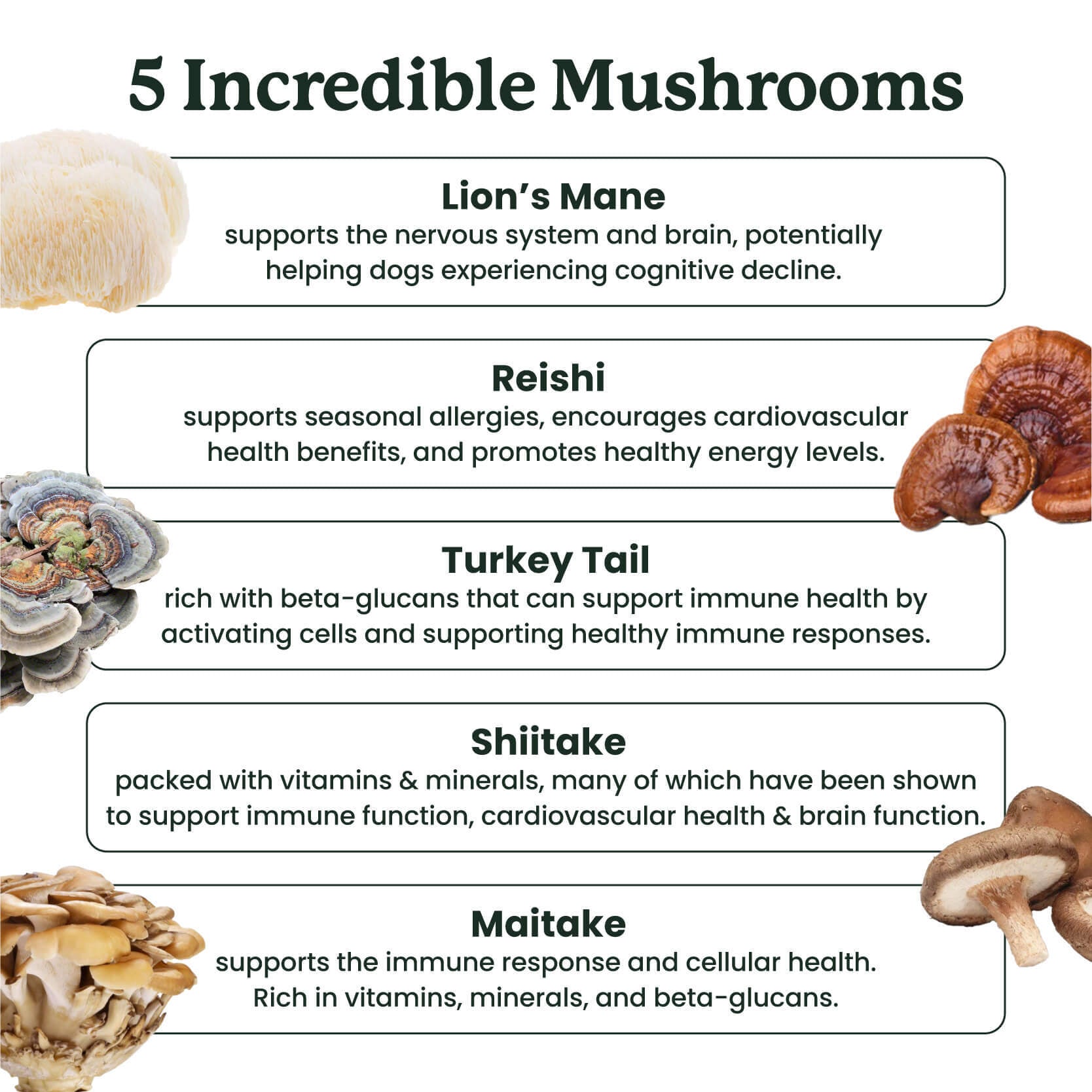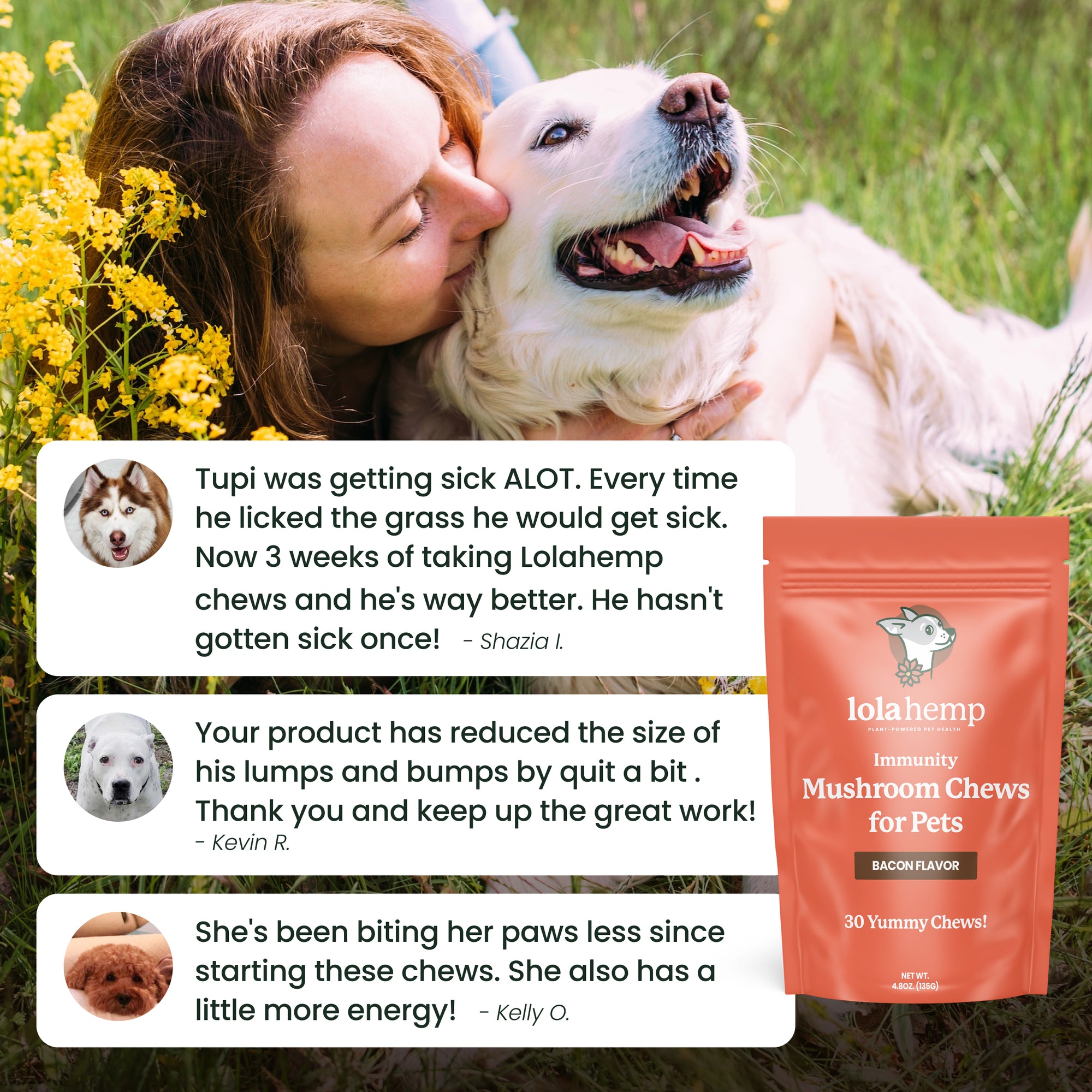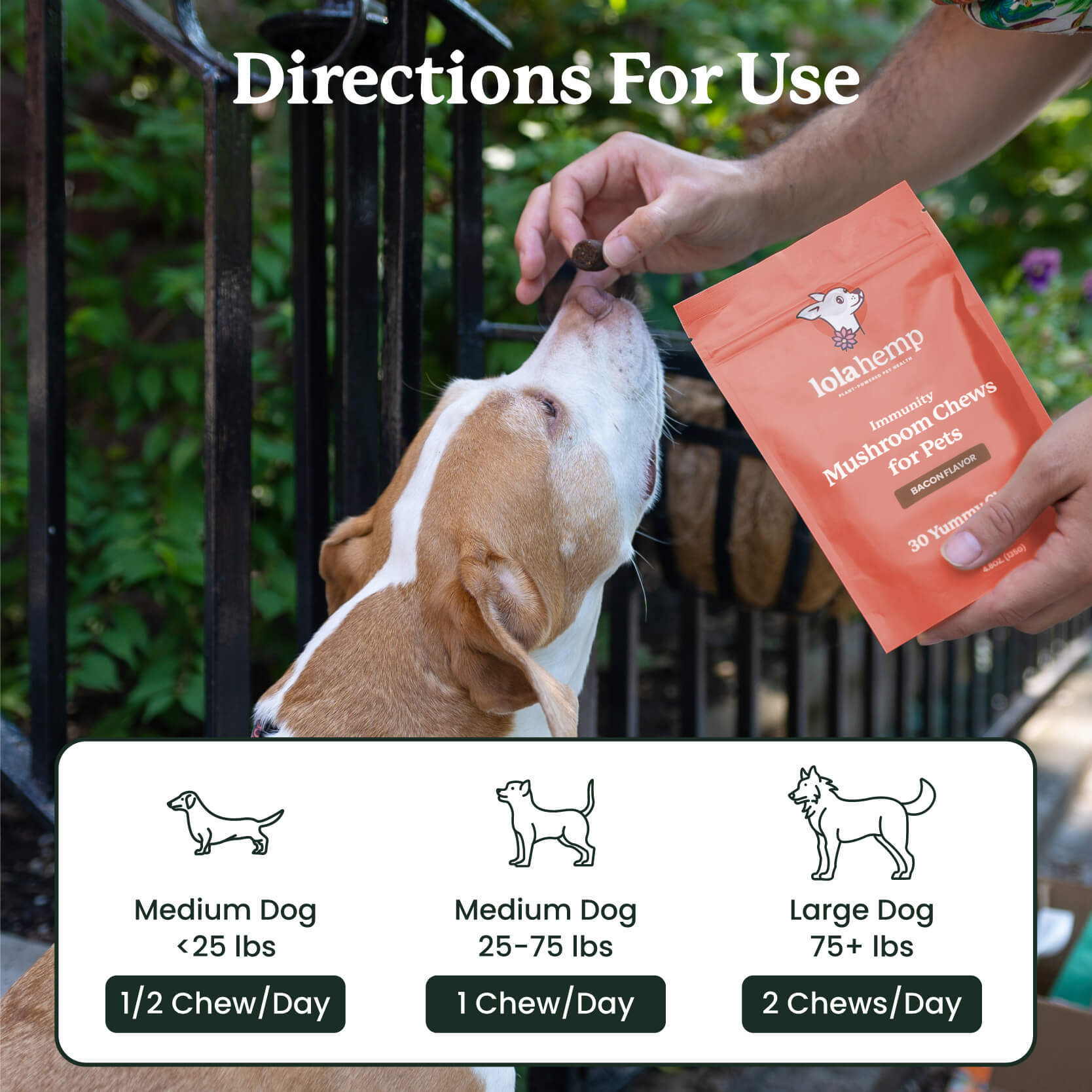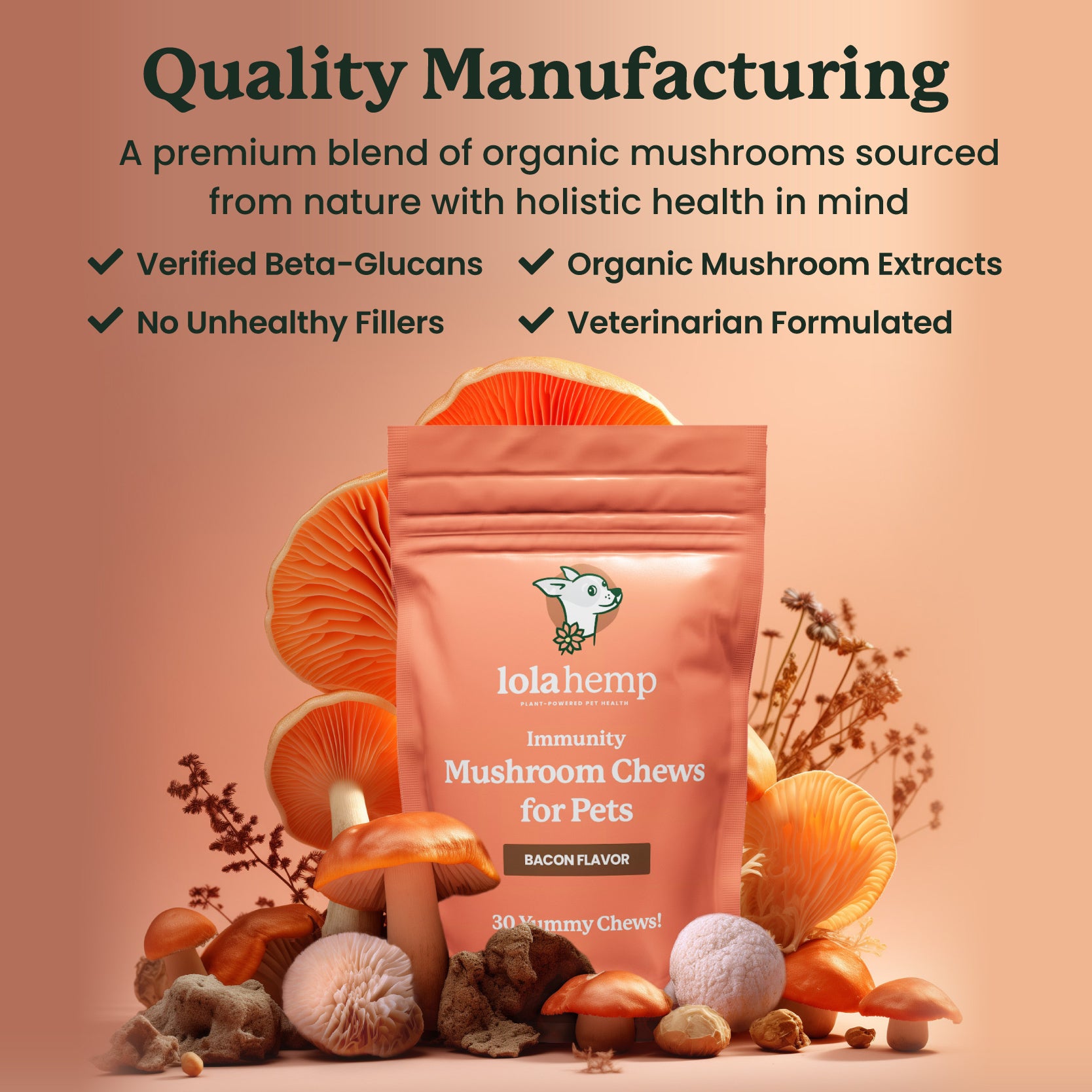Not all human foods are safe for dogs. In fact, an estimated 30-40% of common human foods could be harmful to dogs, even in small amounts. Some foods pose an even greater risk when consumed in large quantities—like a dog getting into a whole bag of toxic treats or regularly eating certain unsafe foods over time.
This guide will break down the most common human foods that are safe for dogs and highlight the ones that should always be avoided. Note that if you're looking to adjust your dog's diet for health benefits, you can explore veterinarian formulated supplements with key ingredients in the right proportions for your dog.
Why Some Human Foods are Unsafe for Dogs to Eat
Many human foods contain ingredients that can be toxic to dogs. Some foods, like chocolate and grapes, contain naturally occurring compounds that their bodies cannot metabolize. Others, like processed snacks and sugary treats, are loaded with artificial additives, salt, and fats that can lead to severe health issues, including pancreatitis, obesity, and digestive distress.
Feeding your dog straight from your plate might seem harmless, but it can quickly become dangerous. Many common meals contain hidden ingredients—like onions, garlic, and xylitol—that are extremely toxic to dogs, even in small amounts.
On the other hand, choosing the right human foods for your dog can have significant health benefits. Nutrient-rich options like lean meats, select fruits, and vegetables can provide essential vitamins and minerals, support digestion, and even contribute to a shinier coat and stronger immune system. By making informed choices, you can enhance your dog’s diet while keeping them safe.
Let's look at the safest options for dogs first. Find below 10 human foods dogs can have regularly, as well as 10 that dogs can have on occasion.
10 Human Foods Dogs Can Have Daily
Dogs can safely enjoy a variety of nutrient-rich human foods that offer health benefits when incorporated into their diet. These foods provide essential vitamins, minerals, and proteins that support overall well-being. Below are ten human foods that dogs can eat daily in appropriate portions.
Cautionary Note:
While these foods are generally safe for daily consumption, portion control is crucial to prevent digestive upset or nutritional imbalances. Always introduce new foods gradually, and consult with a veterinarian if your dog has specific dietary restrictions, allergies, or health conditions. This guide is for informational purposes only and does not replace professional veterinary advice.
10 Human Foods Dogs Can Have Occasionally
Some human foods are safe for dogs in moderation but should not be a daily part of their diet. These foods may have higher fat, sugar, or sodium content, or they may carry minor risks if overfed. Below are ten human foods dogs can enjoy occasionally in controlled portions.
Cautionary Note:
These foods should only be given occasionally and in small portions to prevent health issues such as obesity, digestive upset, or long-term nutrient imbalances. Always ensure foods are prepared safely, and consult your veterinarian if you have concerns. This guide is for informational purposes only and does not replace professional veterinary advice.
20 Foods You Should Never Give Your Dog
Some human foods are highly toxic or dangerous for dogs, even in small amounts. These foods can cause severe health issues, including poisoning, organ failure, and even death. Below are 20 foods that should never be given to dogs.
Cautionary Note:
These foods should always be avoided, as they can cause serious health issues in dogs. Even small amounts can be harmful or fatal. If your dog accidentally ingests any of these foods, contact a veterinarian immediately. This guide is for informational purposes only and does not replace professional veterinary advice.
Conclusion
Hopefully, this guide can continue to help you keep your pet safe and healthy. The items in this list are based upon our research into the current safety and health benefits of all of the foods included.
If you are curious about a certain vegetable, fruit, or ingredient, or have had a different experience with this human foods for your dog, let us know in the comments below! If we see something that doesn't align with what we have discussed, we will do further research and adjust if necessary.
Always use caution when you're giving your pet new foods. If there is ever any question of a food or ingredient's safety for your dog, discuss it with your veterinarian to get approval or denial.
Frequently Asked Questions About Human Foods for Dogs
1. What human foods are safe for dogs?
Dogs can safely eat plain cooked meats, carrots, pumpkin, blueberries, and small amounts of plain yogurt or eggs. Always avoid seasoning, sauces, and processed ingredients.
2. What human foods should I never give my dog?
Never feed your dog chocolate, grapes, raisins, onions, garlic, xylitol, macadamia nuts, alcohol, or caffeine, as these are toxic even in small amounts.
3. Can dogs eat fruit?
Some fruits like blueberries and watermelon (seedless) are safe, but many others, including grapes, cherries, and citrus, can be dangerous. Always check each fruit individually.
4. How much human food can I safely share with my dog?
Treats and human food should make up no more than 10% of your dog’s daily caloric intake. The rest should come from a balanced, species-appropriate diet.
5. What should I do if my dog eats something toxic?
Contact your veterinarian or an emergency pet poison hotline immediately. Quick action can make a major difference in your dog’s recovery.

